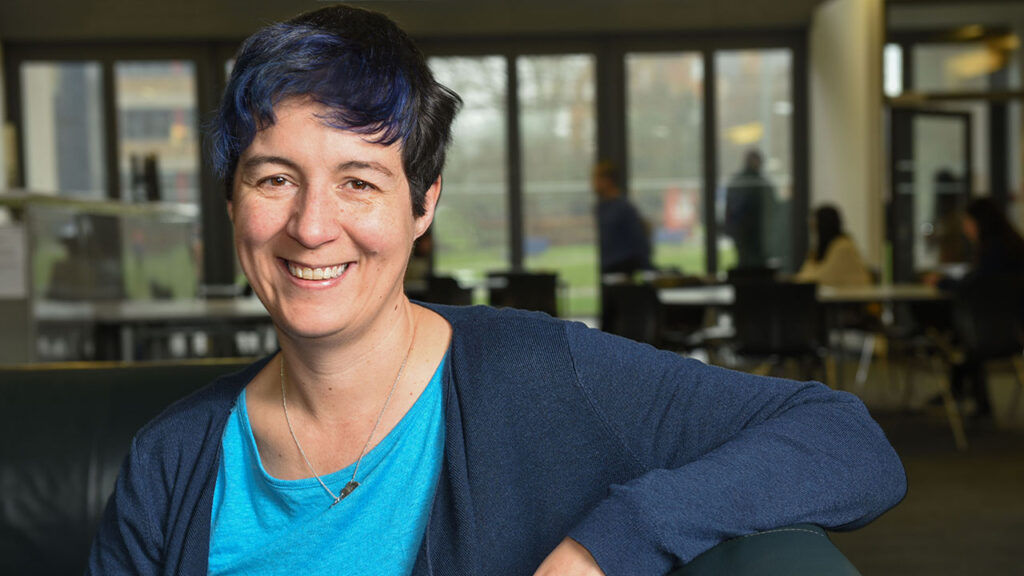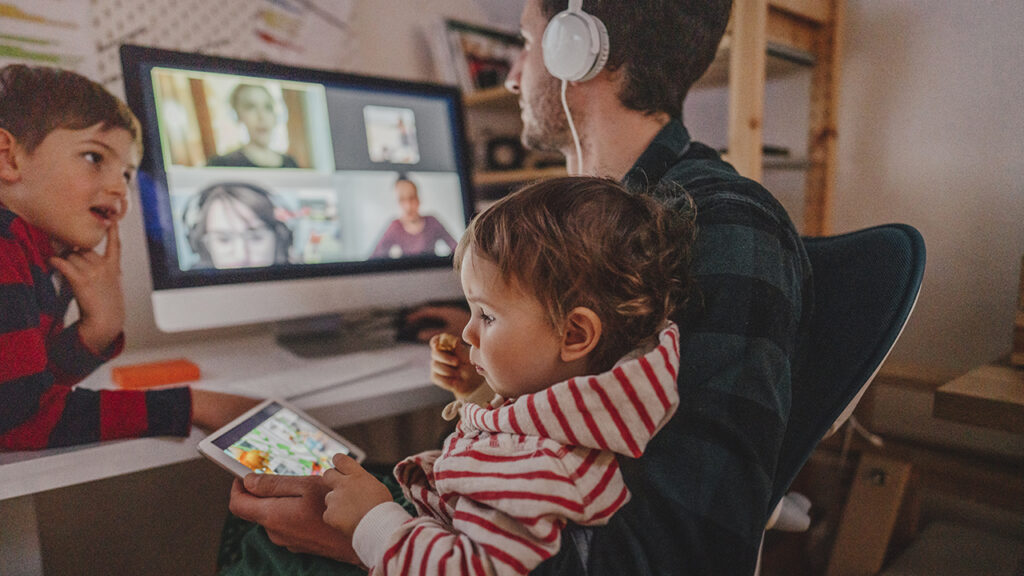
Caring for the caregivers: What makes science success and caregiving possible?
I’m Ellie Highwood, a diversity and inclusion consultant and coach to academics, researchers and scientists – and formerly Professor of Climate Physics at the University of Reading.
I spent 11 years working part-time following becoming a parent and there were three things I needed people to know when I had primary aged children:
- Please don’t stop me if I am running to leave the building, I am almost certainly late for pick up.
- Please don’t send me papers at 5pm for a 9am meeting the following day (also 5pm Friday for 9am Monday).
- I need coffee (and preferably cake!) at a 9am meeting because I have been up and working at caregiving since 6am.

In my experience as a caregiver, a manager, and a coach, I have often needed to talk about the support required for people with caring responsibilities at universities and research organisations. It’s not until you find yourself applying the word “caregiver” to yourself or someone close to you that you discover how challenging it is to translate the theoretical “support for caregivers” into meaningful actions.
I’d like to draw on experiences* shared with me by postdoctoral researchers to professors across atmospheric and environmental science – experiences where combining a science career and caring get real.
1. Your day-to-day work and caring commitments clash
Many research scientists benefit from relatively flexible working environments, but the unpredictable nature of caregiving means clashes between work and caregiving commitments still occur.
A child’s illness, a parent’s fall, school closures, or other unexpected caregiving duties, have all required extra juggling and honest conversations with managers. This struggle is amplified for those with sole caregiving responsibilities or dependents with complex needs, and confounded by some lingering assumptions about who gives care and biases about the impact of caregiving on effective work.
A researcher shared with me: “The low point was when a colleague saw me with a baby and said I wouldn’t give you any important work now you’ll be not focused on work.”
Actually my experience of managing many caregivers is that for the vast majority of the time, caregivers are extremely productive at work – perhaps because they are aware of the precariousness of time that goes according to plan!
2. When you need to, are expected to, or want to be away from your usual routine for work
Travel for conferences, fieldwork, or summer schools is often a crucial aspect of a scientist’s career development. However, for caregivers such opportunities can pose logistical and emotional challenges.
Another research scientist explained: “I barely travelled for years until it was made explicit that I couldn’t get a promotion without raising my international profile. So I started to travel, but the boys really hated it and others were quite judgey too.”
Although it’s becoming more common to see childcare facilities at the biggest conferences, balancing travel with caregiving duties requires careful planning and consideration – as well as recognition of the wider impact on family members and partners.
A researcher described some of the impacts: “As fieldwork is variable my partner had to find something that fitted around schools and school holidays. It’s getting easier as kids get older, but the secondary impact on the partner’s careers should not be ignored.”
3. You need to or want to develop your career
Advancing in a scientific career often requires intense competition for funding, publications, and career progression. Balancing caregiving responsibilities with career development can result in slower progress, reduced availability for networking, and challenges in meeting deadlines and expectations.
One research scientist shared with me: “My manageable place was working part-time at 80 percent. I definitely lost scientific ground over that time and still find myself being compared with the profile of a full on (typically male) career and found lacking. I can live with that now but I wish it was different.”

How can we do better?
It’s been my experience that the way in which all of these situations are handled by workplaces have improved. There is generally more recognition of the diversity of caring responsibilities, the consideration of responsibilities in promotion processes, and more thought in terms of planning of meetings and conferences.
We can, and should, still do more. We can normalise caregiving responsibilities by showcasing the diversity of arrangements and by managers and project leaders having a default “yes” to flexible working requests. For example, it’s a particularly powerful demonstration of flexibility around caregiving responsibilities when senior leaders leave meetings to go and do the school run.
A manager explained: “Make it your job to help this person by giving what they ask for or as close as you can – make that “yes” your starting point.”
We can look for places to broaden existing policies to cover a wider range of circumstances. Maternity leave support could be extended to other parental leave situations, or parental leave situations broadened to other caring situations. We can remove specific pinch points by providing funding for “go-with” or extra care at home solutions for travel. We can provide coaching and buddy systems for transition points. We can stop making assumptions or judging people for the choices they make about career and family.
Ultimately, reducing overload at work, promoting a realistic workload allocation, and trusting output regardless of whether hours and location are fixed or flexible will also alleviate the burden on caregivers and create a more supportive work environment.

*I’d like to thank the people who shared their experiences with me including: James Allan, Emily Black, Ben Cosh, Anna-Louise Ellis, Gabi Hegerl, Mike Lockwood, Paul I Williams, and several others who preferred to remain anonymous.
